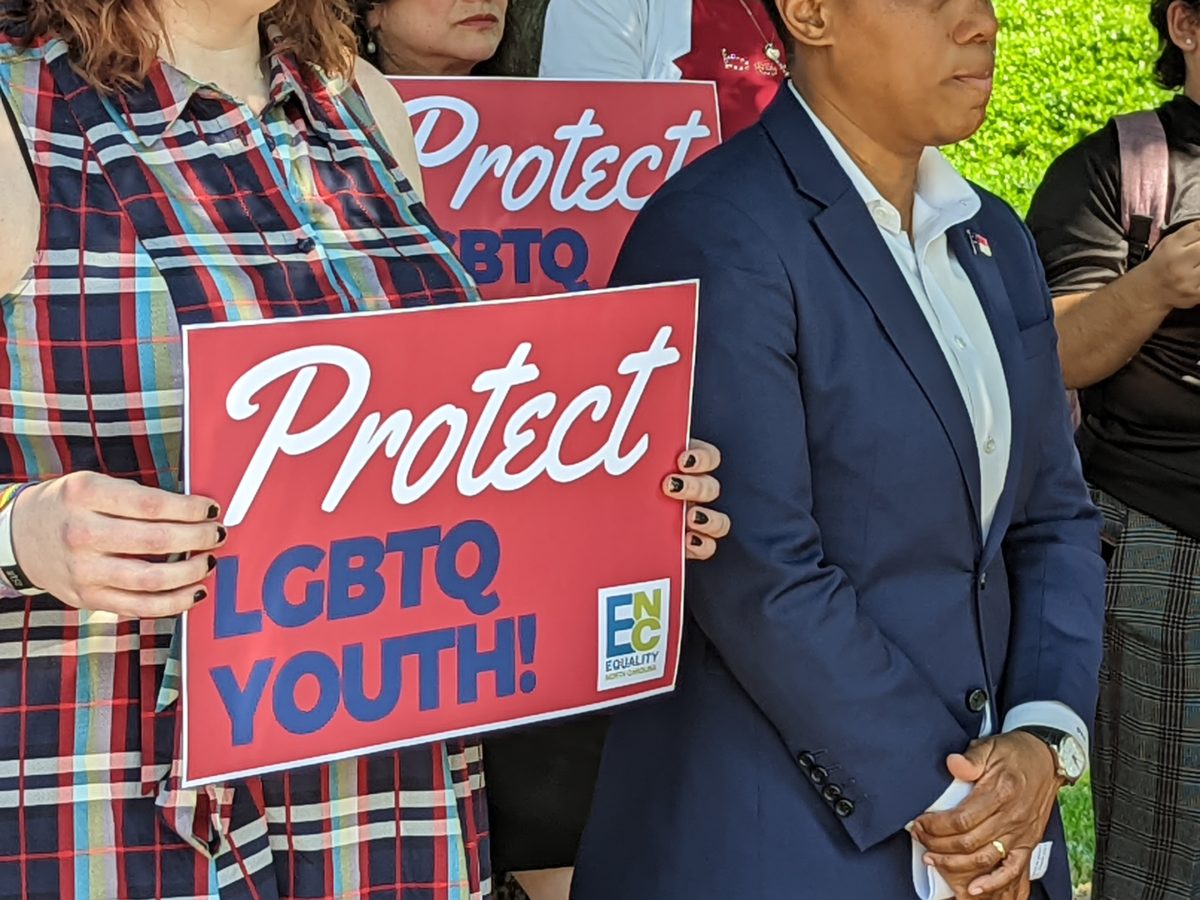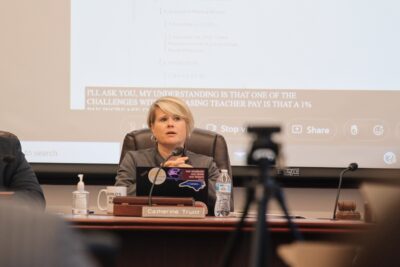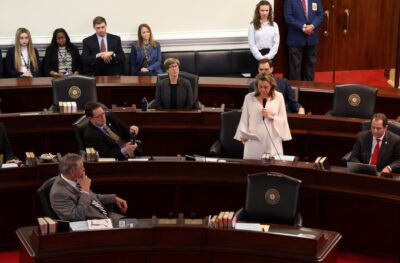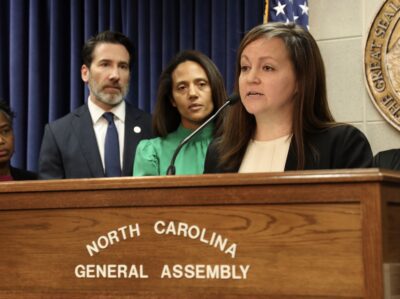

|
|
The Campaign for Southern Equality (CSE) and Equality NC recently held a virtual town hall on supporting young LGBTQ+ people after several laws advocates say harm LGBTQ+ youth passed in North Carolina.
“As we know, overall, all of this feels really confusing for educators, for school staff, and very scary for students,” said Brennan Lewis, education policy associate for Equality NC. “So I want to emphasize the impact that these bills are already having on individual schools. We know that teachers and school staff are already overburdened, overworked, and underpaid.”
This town hall event came about two weeks after the CSE filed an official complaint alleging recent legislation such as Senate Bill 49 and House Bill 574 violates rights protected by Title IX, which prohibits discrimination in educational settings based on sex.
The meeting featured resources and information for students and school staff, as well as a question and answer portion.
The CSE filed the Title IX complaint with the U.S. Department of Education’s Office for Civil Rights and the Department of Justice on Jan. 30. The 113-page complaint features testimonies from parents, students, educators, administrators, and school board members from across North Carolina.
“We have no idea how long that’s going to take to investigate. But it is in process and Raleigh is very much aware that that complaint has been filed,” said Craig White, supportive schools director for the CSE.
SB 49, also called “The Parent’s Bill of Rights,” prohibits instruction about gender and sexuality in kindergarten through fourth grade and requires school personnel to out students to parents if the student discloses to a staff member they wish to change their name or pronouns.
HB 574 prohibits transgender students from joining the sports team that most closely aligns with their gender.
The CSE filed the complaint in the hopes that the Department of Education or the Department of Justice will determine the legislation violates Title IX. The State Board of Education and Department of Public Instruction would then have to work to ensure compliance with Title IX in public schools.
“One of the most powerful things is not the resolution of the complaint, but the filing of the complaint,” White said. “And then knowing that I am bearing witness, I’m seeing something that’s wrong, I am bearing witness to the fact that something is wrong, and I’m calling it out, and I’m calling for it to be better.”
The 24 testimonials from parents, students, teachers, and more included in the complaint allege harm, creation of an unsafe environment, and discrimination due to the recent legislation.
Excerpts from the testimonials include:
- A school administrator testified: “Following SB 49 would require us to eliminate the majority of the comprehensive health education program in grades K-4. Censoring these pivotal topics for our younger students, especially gender identity, will create an environment where students and families are misunderstood by their peers and excluded from the daily affirmations all students deserve. A critical consequence of eliminating this instruction for families and staff will be increased misunderstandings that affect a hostile classroom environment. As a result, the risk for adverse mental health consequences like depression, anxiety, and even self-harm and suicide among students increases substantially.”
- A school social worker testified: “It is unfortunate that I am experiencing barriers to providing behavioral health services in schools because I refuse to go against my ethics and break a client’s confidentiality. This bill is incredibly scary and does not take into account many statistics surrounding the LGBTQIA+ community, such as increased suicide and self-harm rates when they are outed in their community. We are ultimately harming students, and the effects of this bill should be taken into consideration.”
- A high school student testified: “This new ‘Parents Bill of Rights’ has made it mandatory for my teachers to tell my parents the fact that I use a different name and pronouns. My parents disapproved, of course, and it was a fight for me to be able to be who I am in a place that I’m in almost every day. I already suffer from mental health issues like depression, gender dysphoria, and anxiety, and the ongoing battle of trans rights (MY rights) aren’t making it any better. Although I can ‘freely’ use my name and pronouns in the classroom now (my parents still disapprove), the idea that transgender students have to be forcefully outed, even if school personnel are against it, is ludicrous. The NC state legislature should be ashamed of the harm they are inadvertently causing trans kids like me.”
- A parent testified: “HB574 has been directly impactful. Our daughter was looking forward to swimming for [redacted] as a freshman and making new friends. Prior to this year she swam at the local swim club where she was friends with many of the other swimmers, many of whom didn’t know she was trans. Naturally, some of those friends were in her class or already in high school and it forced her to have an explanation for why she wasn’t swimming for the high school, since she wasn’t comfortable telling many of them the real reason. Moreover, she is denied the ability to represent her school in swimming, something that would have been a point of pride.”
- A high school student testified: “Enduring the aftermath of SB49 was a traumatizing experience, that was only increased by the unsupportive stance of my parents. Many of my plans for this year, I’d been waiting for had been canceled by transphobic bigots: I intended to share my truth with my coaches to switch to the team aligned with my true gender and many books I intended to read from my library as an avid reader were removed for ‘LGBT undertones.’ Not to mention, many of the teachers/staff that acted as a safe space for many had to deadname and misgender us out of fear of losing their jobs.”
SB 49 and HB 574 passed in 2023 and came into effect earlier this year. Gov. Roy Cooper vetoed both bills, but the General Assembly overrode those vetoes.
White said complaints are often confused with lawsuits. While a lawsuit is a challenge to an unjust law usually by an attorney or with an attorney’s help, a civil rights complaint can be filed by anyone aware of discrimination taking place, they said.
White encouraged those present at the Feb. 15 town hall to file their own Title IX complaints when they see evidence of discrimination in schools.








